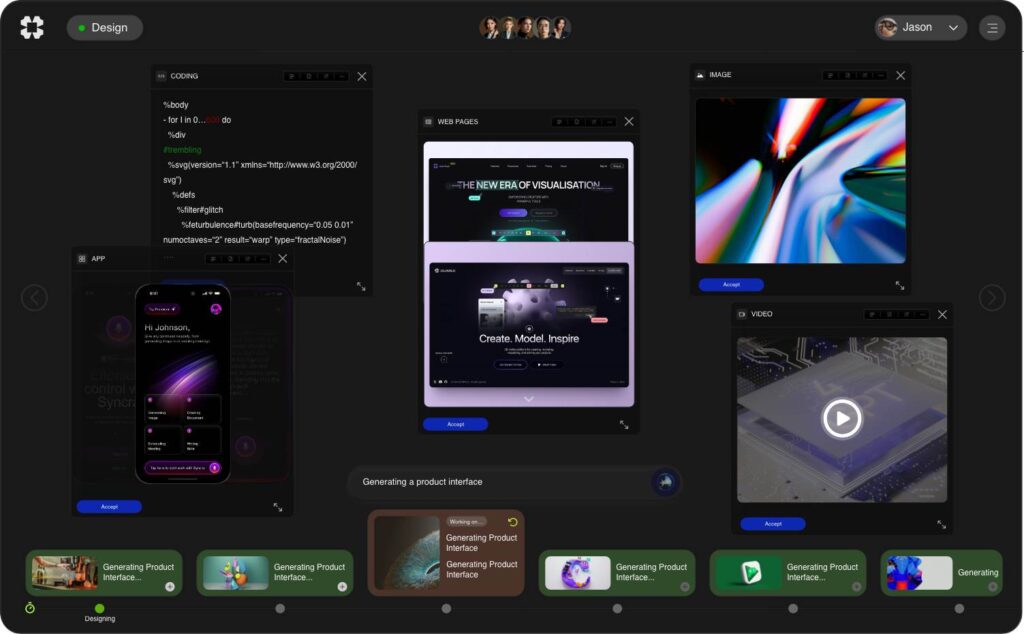As urban populations continue to swell, the need for efficient, sustainable, and intelligent urban management has never been more pressing. The integration of Artificial Intelligence (AI) into smart city initiatives is revolutionizing how cities operate, enhancing the quality of life for residents while addressing complex urban challenges. This article delves into the latest trends, updates, and applications of AI in smart cities, focusing on AI-driven project planning, data analytics automation, and industry use cases that exemplify this transformative technology.
.
**The Rise of AI in Smart Cities**
Smart cities leverage advanced technologies to improve urban infrastructure, enhance public services, and promote sustainable living. The integration of AI plays a pivotal role in this transformation, enabling cities to analyze vast amounts of data, make informed decisions, and optimize resource allocation. According to a report by McKinsey, AI could create up to $1 trillion in value for cities by 2030, primarily through enhanced operational efficiency and improved quality of life.
.
**AI-Driven Project Planning: Streamlining Urban Development**
One of the most significant applications of AI in smart cities is in project planning. Traditional urban planning processes often involve lengthy timelines and extensive human resources, leading to inefficiencies and delays. AI-driven project planning tools can analyze historical data, current trends, and predictive analytics to streamline the planning process.
For instance, AI algorithms can assess the feasibility of proposed projects by analyzing demographic data, traffic patterns, and environmental impacts. This allows city planners to make data-driven decisions that align with community needs and sustainability goals. Furthermore, AI can simulate various scenarios to predict the outcomes of different planning strategies, enabling planners to choose the most effective approach.
A notable example of AI-driven project planning is the use of generative design in architecture. Firms like Autodesk have developed AI software that generates multiple design alternatives based on specified parameters. This not only accelerates the design process but also fosters innovation by exploring unconventional solutions that human designers might overlook.
.
**AI for Data Analytics Automation: Enhancing Decision-Making**
Data analytics is at the heart of smart city initiatives, providing insights that drive decision-making across various sectors, from transportation to public safety. However, the sheer volume of data generated in urban environments can be overwhelming. AI for data analytics automation addresses this challenge by enabling cities to process and analyze data more efficiently.
AI algorithms can sift through massive datasets in real time, identifying patterns and trends that inform city management. For example, AI can analyze traffic data to optimize traffic light timings, reducing congestion and improving air quality. Similarly, AI can monitor energy consumption patterns in real time, allowing cities to implement demand-response strategies that enhance energy efficiency.
A prime example of AI in data analytics automation is the deployment of predictive maintenance in public infrastructure. By analyzing data from sensors embedded in roads, bridges, and public transport systems, AI can predict when maintenance is required, preventing costly repairs and ensuring public safety. This proactive approach not only saves money but also minimizes disruptions to city services.
.
**Industry Applications: Real-World Use Cases of AI in Smart Cities**
Several cities around the world are already harnessing the power of AI to enhance urban living. Here are a few notable use cases:
1. **Barcelona, Spain**: The city has implemented an AI-driven smart lighting system that adjusts brightness based on pedestrian and vehicle activity. This not only saves energy but also enhances public safety by ensuring well-lit streets during peak hours.
2. **Singapore**: The Smart Nation initiative in Singapore utilizes AI to optimize public transport. By analyzing real-time data from various sources, the city can adjust bus and train schedules to meet demand, reducing wait times and improving overall efficiency.
3. **Los Angeles, USA**: The city has adopted AI for predictive policing, analyzing crime data to identify hotspots and allocate resources more effectively. While this application has sparked debates about ethics and privacy, it demonstrates the potential of AI to enhance public safety.
4. **Amsterdam, Netherlands**: The city has integrated AI into its waste management system, using sensors and data analytics to optimize collection routes and schedules. This not only reduces operational costs but also minimizes the environmental impact of waste collection.
.
**Challenges and Considerations in Implementing AI in Smart Cities**
While the potential benefits of AI in smart cities are significant, several challenges must be addressed to ensure successful implementation. Privacy concerns are paramount, as the collection and analysis of vast amounts of data can infringe on individual rights. Cities must establish robust data governance frameworks that prioritize transparency and accountability.
Additionally, the integration of AI technologies requires significant investment in infrastructure and training. Cities must ensure that their workforce is equipped with the necessary skills to leverage AI effectively. Collaboration between public and private sectors is essential to foster innovation and share best practices.
.
**The Future of AI in Smart Cities: Trends to Watch**
As technology continues to evolve, the future of AI in smart cities looks promising. Several trends are emerging that will shape the landscape of urban living:
1. **Increased Interconnectivity**: The Internet of Things (IoT) will play a crucial role in enhancing the capabilities of AI in smart cities. As more devices become interconnected, the volume of data available for analysis will grow, enabling more sophisticated AI applications.
2. **Sustainability Focus**: With growing concerns about climate change, AI will increasingly be used to develop sustainable urban solutions. From optimizing energy consumption to enhancing waste management, AI will be instrumental in creating greener cities.
3. **Citizen Engagement**: AI technologies will facilitate greater citizen engagement in urban planning and decision-making processes. Through AI-driven platforms, residents can provide feedback and participate in shaping their communities, fostering a sense of ownership and collaboration.
4. **Ethical AI Development**: As the use of AI in public services expands, there will be a greater emphasis on ethical AI development. Ensuring that AI systems are fair, transparent, and accountable will be critical to maintaining public trust.
.
**Conclusion: Embracing AI for Smarter Urban Futures**
The integration of AI into smart city initiatives is transforming urban living, offering innovative solutions to complex challenges. From AI-driven project planning to data analytics automation, cities are harnessing the power of AI to enhance efficiency, sustainability, and quality of life for residents. As we move forward, embracing AI responsibly and ethically will be essential to creating smarter, more resilient urban environments. The future of our cities depends on the intelligent solutions we implement today.
.
**Sources:**
1. McKinsey & Company. (2021). “The Future of Cities: How AI Can Transform Urban Living.”
2. Autodesk. (2020). “Generative Design: The Future of Architecture.”
3. Smart Nation Singapore. (2021). “AI in Public Transport: Enhancing Efficiency and Accessibility.”
4. City of Los Angeles. (2020). “Predictive Policing: Using Data to Enhance Public Safety.”
5. Amsterdam Smart City. (2021). “Optimizing Waste Management with AI Technologies.”





















